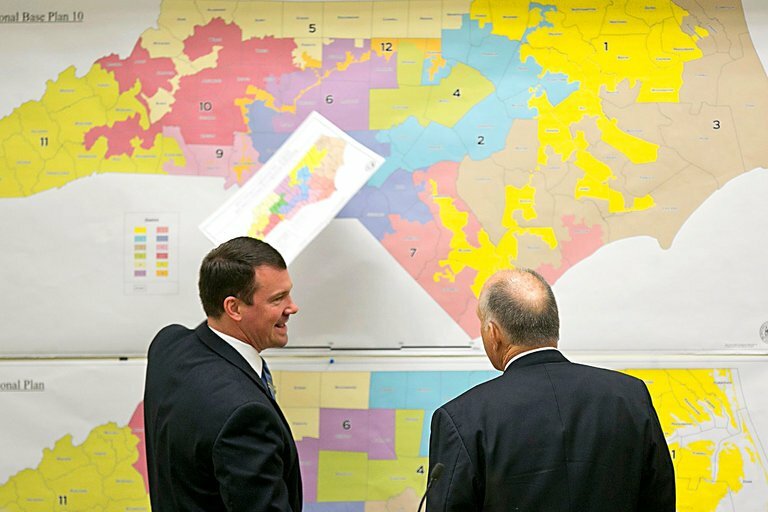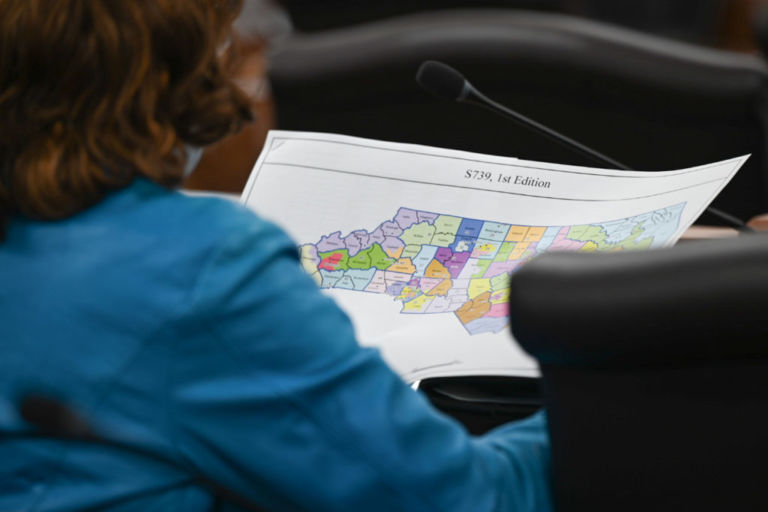JLF’s Mike Schietzelt and Mitch Kokai spoke on Friday, February 7, at the Campbell Law Review’s symposium on North Carolina voting rights. In addition to Kokai and Schietzelt, the symposium featured speakers from the North Carolina Democratic Party, the Southern Coalition for Social Justice, members of the N.C. legislature, staff from the UNC School of Government, and law professors from around the state.
Kokai spoke on a panel entitled “Where do we Draw the Lines? Gerrymandering in North Carolina.” The panel addressed the history of gerrymandering in North Carolina, the recent court opinions on North Carolina’s congressional maps, and the complexity of partisan litigation attempts. Accompanying Kokai on the panel were Wayne Goodwin, President of the N.C. Democratic Party, Brent Woodcox, Special Counsel to Sen. Phil Berger (R-Rockingham), and Neal Inman, General Counsel to N.C. House Speaker Tim Moore (R-Cleveland County).
Kokai made three key points:
- The John Locke Foundation has been a longstanding supporter of redistricting reform – regardless of which political party is in power.
- The question that many people are asking is “If you do have redistricting reform, who draws the lines?” More important than who draws the lines, however, is “what are the rules that will govern those who draw the maps?”
- This has become a debate about the calculation of the political impact rather than a debate about design of the districts. Kokai stated:
The debate over redistricting reform gets lost when it gets into political calculations. It becomes a tit-for-tat depending on who is in the majority. If you go back to focusing on preventing oddly based districts, that is when you will start creating effective reform.
To further his third point, Kokai referenced a Mercatus report that concluded redistricting reform should not focus on partisan outcomes but, rather, on preventing the irregularity of districts. Kokai illustrated this point by examining the political language surrounding North Carolina’s 12th District. The Democrats first created a serpentine 12th district, and the Republicans later modified it, but both parties used it to point fingers. (See 12 district in maps below).
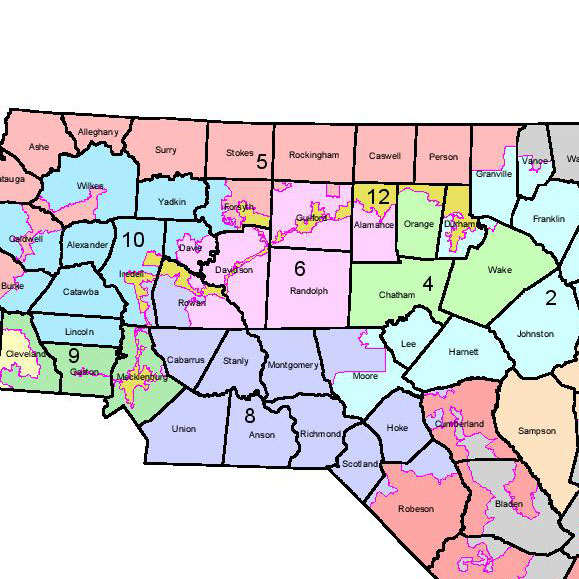 |
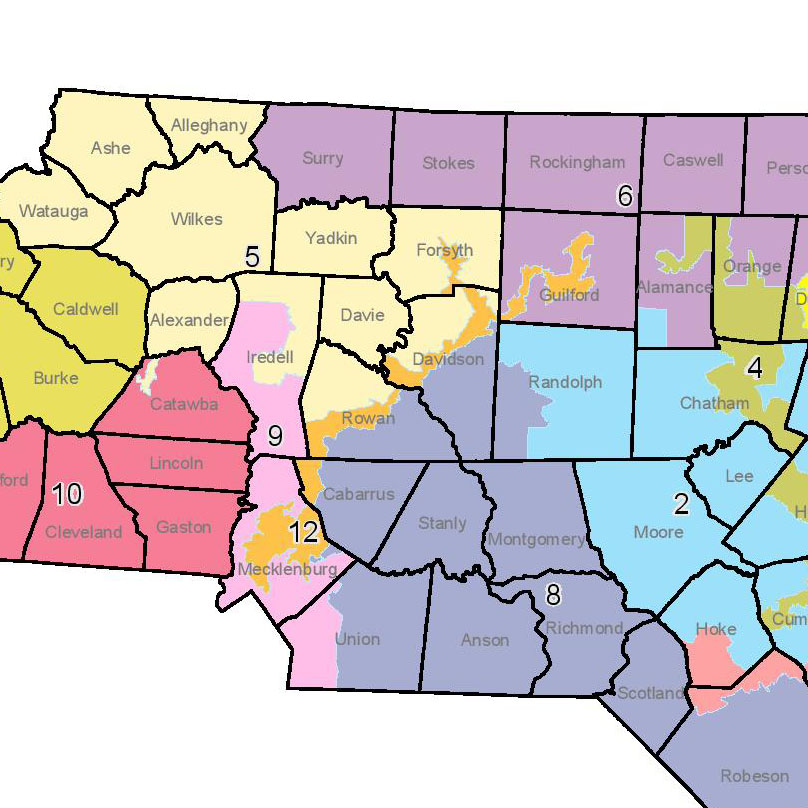 |
| 1992 Map (Democratic Legislative Majority) | 2011 Map (Republican Legislative Majority) |
Gerrymandering is nothing new, Kokai pointed out:
Gerrymandering is as old as the United States. Before it even had a name, James Madison almost got gerrymandered out of a seat in the first congress. This is something that has been with us for a very long time.
The thing to do now, Kokai said, is to create rules like having compact contiguous districts, not splitting counties more than you have to, and not using data from previous elections.
Brent Woodcox was on the same page:
I agree with Mitch, the best thing you can do is put up guard rails on redistricting.
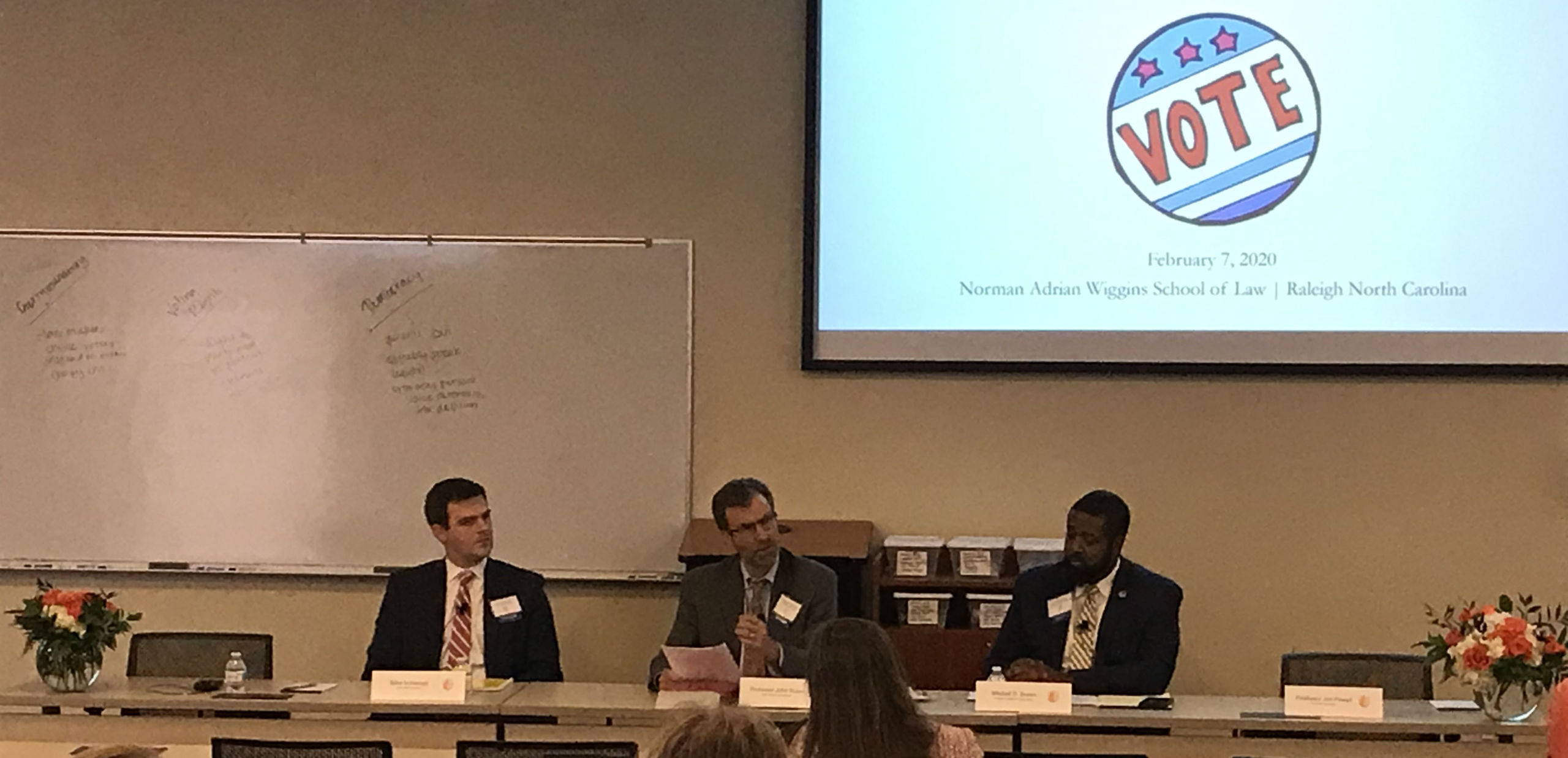 |
| Panel “Rights Restored: The Path to Vote for North Carolina’s Former Felons.” Left to Right: Mike Schietzelt, John Rubin, Mitchell D. Brown |
Later in the day, JLF’s Mike Schietzelt spoke on a panel entitled “Rights Restored: The Path to Vote for North Carolina’s Former Felons.” The panel addressed the consequences of a criminal conviction, specifically how criminal convictions impact a former offender’s right to vote. Accompanying Schietzelt on his panel were Mitchell D. Brown, Equal Justice Works Fellow, Southern Coalition for Social Justice, and John Rubin, UNC School of Government.
During the panel, Schietzelt said:
North Carolina has never written a proper criminal code. Our criminal code is a combination of written laws and common law. If you look through chapter 14 (the criminal law chapter), it reads a lot like a musical theme and variations. Instead of outlawing theft, we have statute after statute of differing kinds
of theft, so you have theft of ungathered crops, theft of property fixtures, theft of pine needles, etc. On top of this, we have hundreds of local governments and agencies with the ability to create crimes – that makes the criminal code even more complicated and messy.
The criminal code is like a bear trap. For those who are trying to reintegrate into society, the stakes are much higher. It becomes less of a bear trap and more of a minefield.
Read Mitch Kokai’s Carolina Journal article on gerrymandering here, and read Schietzelt’s most recent research brief on the criminal code here.
